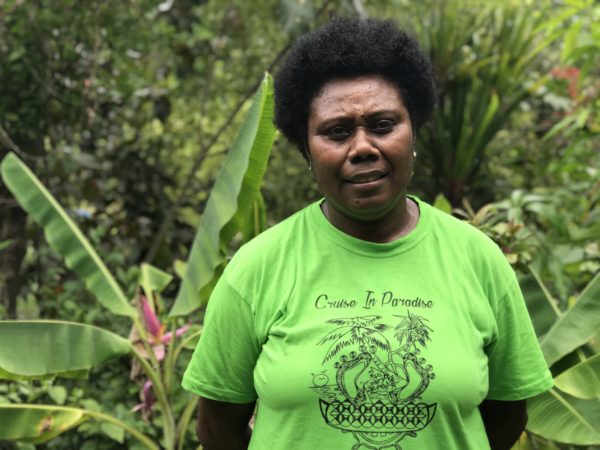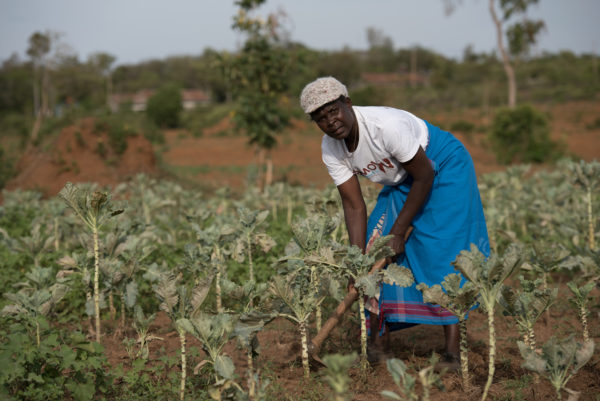Gender Responsive Alternatives for Climate Change (GRACC) is a ground-breaking program, supported by the Australian Government’s Australian NGO Cooperation Scheme’s Gender Action Platform, through which ActionAid is supporting women to respond to the gendered impacts of climate change. It is a project that supports women as they claim their rights and demand justice for themselves, and women everywhere.
8,000 women. 14 locations. 3 countries. 30 women-led local committees.
In the spotlight
Melia David is a member of the ‘Women I Tok Tok Tugeta’ (‘Woman talk, talk together’ in Ni-Vanuatu) forum in Vanuatu, which has developed through this program. These forums bring women together to discuss their rights, particularly in relation to disasters.
“Livelihood opportunities should focus on women to ensure that all people have the opportunity to support their families, especially in times of disaster.”
Melia knows first-hand that disasters create severe impacts for her community, including forced displacement, food insecurity, and violations of human rights, all of which disproportionately impact women and others experiencing poverty, injustice and exclusion. In fact, according to UNDP (2013), women and children are 14 times more likely to die in a disaster than men.
In Vanuatu, members of the women’s forums are now engaging in national-level dialogues on climate change and links are being made between women at the local level and national level institutions. There are plans in place for this to be replicated in Kenya and Cambodia.

Melia David, Vanuatu
In the spotlight
“Back then, I didn’t consider myself worthy. My farm gave me the confidence to move on with life.”
Mary once struggled to make ends meet. She experienced violence at home, and was in an abusive relationship, without access or control over the resources she needed to provide for herself and her family.
When Mary’s abusive relationship got worse, she took her children and moved to her parents’ house. Not long after, she joined a farmer’s group, supported by ActionAid Kenya, and learned new farming techniques, as part of a women-led response to climate change. Through this support, and through this program, Mary has thrived. She is now the leader of the Kitos farming group, which has successfully lobbied their county government for support and funding for more seeds and training in farming techniques. GRACC supports gender-responsive alternatives to climate change, and through this program, women like Mary are leading this change within their community, being supported to learn about new farming techniques that are more resilient to climate impacts.

Mary Adera Litewo in her farm in Aduwa, Siaya County, Kenya. her farm used to flood due to Dominion activities.
How can we better support women like Melia and Mary to lead the response to climate change? Through this innovative program, a women’s charter of demands has been developed in Cambodia, Kenya and Vanuatu to facilitate women’s engagement in influencing government policy-makers. A grassroots leadership academy has been held for 30 community women leaders, and a global coalition formed to influence international policy forums such as COP24 and the UN General Assembly.
Through a partnership between ActionAid Australia, the Hairou Commission and Monash University, we are enabling women from diverse countries to come together, identify the common issues they are facing, and establish collective influence so that women can define and achieve alternatives to climate change.
We believe in creating opportunities to empower women over the long term. We believe that with backing and support, women leaders will rebuild the world. The time is now to stand behind women as they claim their rights and demand justice for themselves, and women everywhere.
Are you on board?
Find out more about our work with women in Cambodia, Kenya and Vanuatu
Take Action:
Help women in Vanuatu prepare for Cyclone season